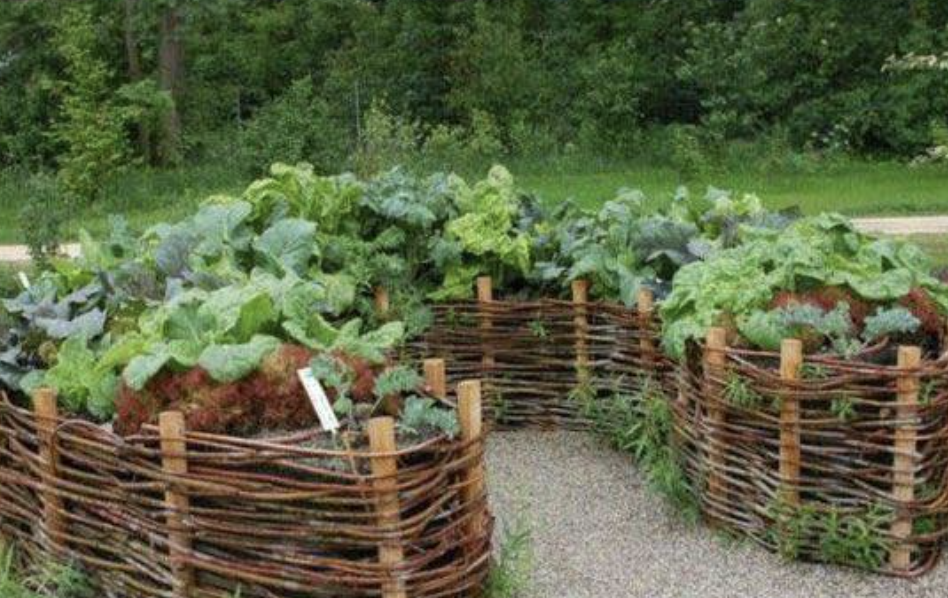Wattle weaving, an ancient technique, remains a timeless method for creating robust and visually appealing structures, such as raised garden beds. By intertwining flexible branches or twigs, primarily from willow or hazel, you can construct a durable and aesthetically pleasing garden feature. Here’s how:
Materials Needed:
- Flexible branches or twigs (preferably willow or hazel)
- Sturdy stakes (about 2 feet longer than the desired bed height)
- Hammer or mallet
- Pruning shears
- Garden gloves
- Measuring tape
- Soil and compost mix
Step-by-Step Guide:
- Planning and Design:
- Determine the size and location of your raised bed, ensuring adequate sunlight for your plants.
- Sketch a rough design with dimensions and shape.
- Preparing the Site:
- Clear the area of weeds and debris.
- Level the ground and mark the bed outline using string or chalk.
- Gathering Materials:
- Collect long, flexible branches or twigs, cutting them into uniform lengths.
- Installing Stakes:
- Cut stakes to the desired length and hammer them into the ground around the marked area.
- Leave about 2 feet of stake protruding above the ground.
- Weaving the Wattle:
- Begin at one corner, weaving branches horizontally between the stakes.
- Alternate the starting side of each branch to create a sturdy, interlocking structure.
- Trim excess lengths with pruning shears.
- Building Up the Walls:
- Continue weaving branches, adding layers until reaching the desired height.
- Ensure tight interweaving for stability.
- Securing the Top:
- Tuck the ends of the final layer into the weave to secure them.
- Optionally, add a more rigid border on top for a neater finish.
- Filling with Soil:
- Mix garden soil with compost and fill the bed with the mixture.
- Planting:
- Choose suitable plants and plant seeds or seedlings according to their requirements.
- Maintenance:
- Keep soil moist but not waterlogged by watering regularly.
- Apply mulch to retain moisture and suppress weeds.
- Prune and maintain the wattle to ensure longevity.
Tips:
- Use freshly cut, green wood for longer-lasting wattles.
- Ensure flexibility in branches for easier weaving.
- Regular maintenance prolongs the wattle’s life.
Building a wattle raised garden bed is a rewarding DIY project and an eco-friendly addition to any garden. Despite its time-consuming nature, this traditional technique yields a functional and attractive outdoor feature. Follow these steps to create a sustainable garden bed that will serve you for years to come. Happy gardening!
